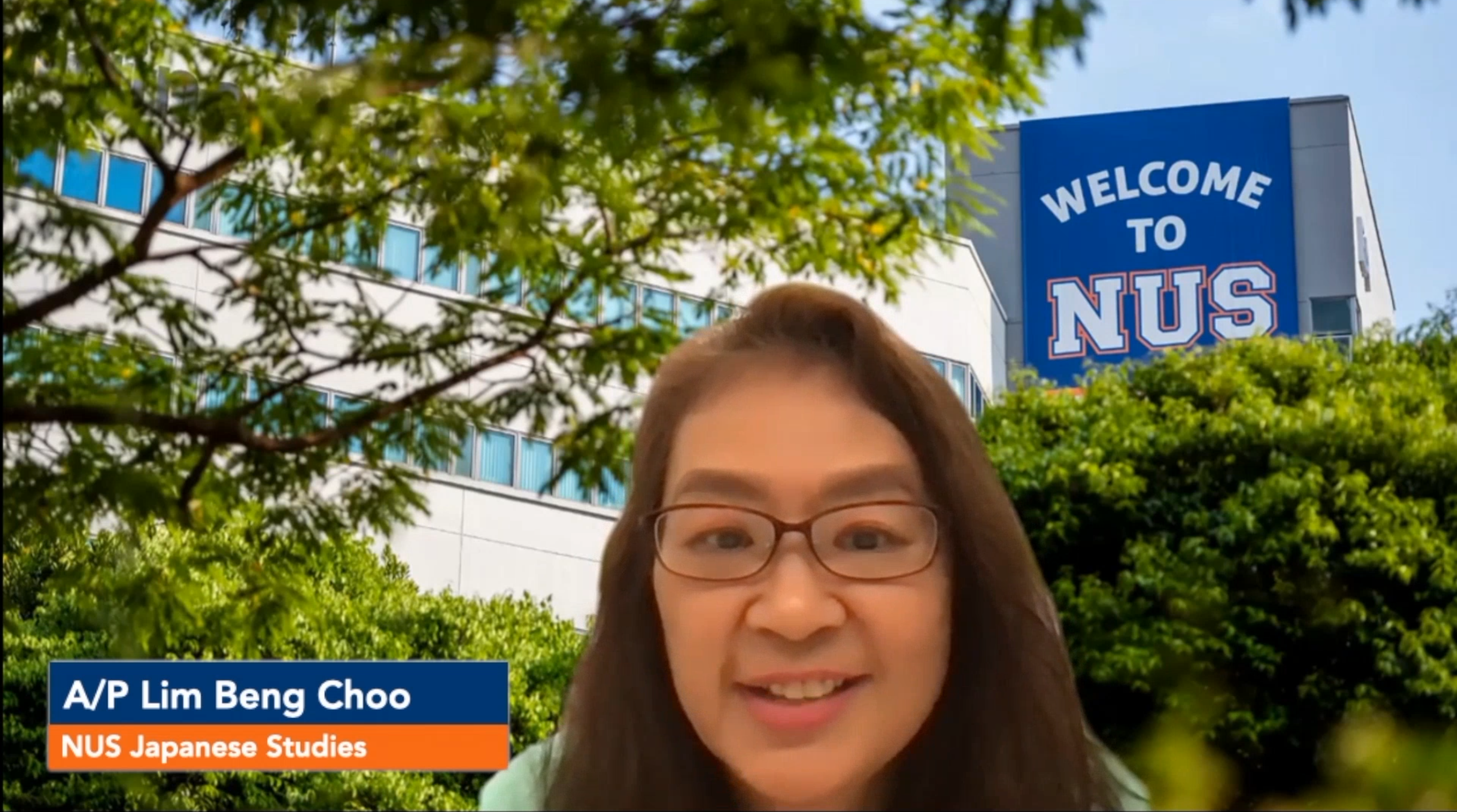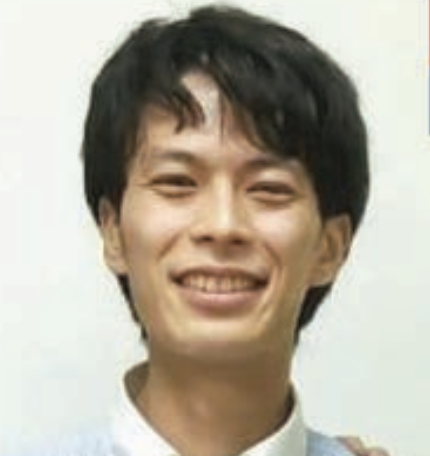
Why pursue graduate study in
Japanese Studies?
The Department of Japanese Studies, the largest in our region, offers graduate programmes that train Japan specialists to make wide-ranging contributions to Singapore and the global community whether at the academic, professional, or government level. The Department invites students who are proficient in the Japanese language and who have strong disciplinary or interdisciplinary training to join our graduate family. Students advance their academic training on Japan through both Department-based courses as well as through offerings from other departments. We also welcome students who work on topics that deal with Japan's relationship with Asia. We strive to develop students who have an interdisciplinary understanding of Japan, yet who are at the same time competitive in the discipline closest to their chosen field of research.
Graduate students are awarded scholarships on a competitive basis and can also apply for funding for international conferences and fieldwork. Students normally spend time in Japan for fieldwork or studies – PhD students usually go to Japan after passing their qualifying examination, Masters students in their third or fourth semester.
The Department offers MA and PhD degrees, and candidates are required to do coursework and submit an original research dissertation to be awarded their degree. Faculty members specialise in a wide array of disciplines, including anthropology, cultural and gender studies, sociology, history, political science, literature, linguistics and business. Graduate students will work closely with specific professors in their primary areas of research interest and they are provided with comprehensive guidance and training to carry out independent research on a topic of their choice.

Graduate Studies Coordinator's Message
Assoc Prof Lim Beng Choo
After graduating from the Department of Japanese Studies with a BA (Hons) and a MA, A/P Lim worked briefly as an interpreter before pursuing her PhD in East Asian Literature at Cornell University with an Overseas Research Scholarship from NUS. Her dissertation, supervised by Professor Karen Brazell (1938 - 2012), was on noh in the late Muromachi period. Her book, Kanze Nobumitsu and the Late Muromachi Noh Theater, published by Cornell East Asian Series, is based on this dissertation.
Programmes & Curriculum
About the Course
The Department of Japanese Studies is one of the largest area studies departments in the Asia-Pacific region devoted to the scholarship on Japan. The Department offers MA and PhD degrees in Japanese Studies taught by faculty members trained in a wide array of disciplines including anthropology, sociology, history, political science, literature, linguistics and business. Graduate students are provided with comprehensive guidance and training to carry out independent research in a theme of their choice, and encouraged to make best use of the available expertise by adopting an inter-disciplinary approach.
- A good relevant NUS Honours degree (second class and above) or equivalent (eg., a four-year Bachelors degree with at least an average grade of B or equivalent) for admission as a MA candidate or a good relevant Masters degree for admission as a PhD candidate.
- A strong command of English (recommended minimum TOEFL score of 600 paper-based, 250 computer-based).
- Japanese language proficiency necessary to do coursework and carry out research.
Successful candidates will (1) fulfill modular requirements, (2) undertake research in a chosen field of study under the guidance of a supervisor, and (3) submit a thesis for examination. Please visit FASS Graduate Programmes for information on application.
Course Structure
MA candidates are required to read and pass 4 modules including the compulsory module JS6770 Graduate Research Seminar (on satisfactory/dissatisfactory grade) before they proceed to research. Subject to approval by the supervisor, candidates may take up to a maximum of 2 modules outside the Department. In consultation with the Department, 1 module can be a level 4000 module.
For more information, please visit here.
About the Course
The Department of Japanese Studies is one of the largest area studies departments in the Asia-Pacific region devoted to the scholarship on Japan. The Department offers MA and PhD degrees in Japanese Studies taught by faculty members trained in a wide array of disciplines including anthropology, sociology, history, political science, literature, linguistics and business. Graduate students are provided with comprehensive guidance and training to carry out independent research in a theme of their choice, and encouraged to make best use of the available expertise by adopting an inter-disciplinary approach.
- A good relevant NUS Honours degree (second class and above) or equivalent (eg., a four-year Bachelors degree with at least an average grade of B or equivalent) for admission as a MA candidate or a good relevant Masters degree for admission as a PhD candidate.
- A strong command of English (recommended minimum TOEFL score of 600 paper-based, 250 computer-based).
- Japanese language proficiency necessary to do coursework and carry out research.
Successful candidates will (1) fulfill modular requirements, (2) undertake research in a chosen field of study under the guidance of a supervisor, and (3) submit a thesis for examination. Please visit FASS Graduate Programmes for information on application.
Course Structure
PhD candidates are required to read and pass 6 modules including the complusory module JS6770 Graduate Research Seminar (on satisfactory/dissatisfactory grade). Up to half of all modules may be taken outside the Department, but must be in disciplines or areas relevant to the candidate's research.
PhD candidates also need to sit for a Qualifying Examination (QE) consisting of a written comprehensive examination and an oral defense of a 30-50 page thesis proposal. In accordance with the Faculty's graduate requirement, the QE must be taken no later than the 24th month from the start of the PhD candidature. A second attempt will be permitted provided that it is taken within 6 months after the first failed attempt.
For more information, please visit here.
Job Ready
The graduate programmes provided by the Department of Japanese Studies offer good employment prospects in view of the large number of Japanese investments and non-Japanese sectors which have large Japanese portfolios. The department receives many job requests every year and these are publicised on the departmental notice-board. Trading and other links between Singapore and Japan have been developing steadily. Many Singaporean companies have been building ties with Japan across a wide spectrum of activities, and Japanese companies have continued to establish plants and offices in Singapore. These companies naturally look to the Department of Japanese Studies to find new recruits and we anticipate a continuing private sector demand for our graduates.
Armed with combined majors in other disciplines, graduates of the department have proven to be versatile yet sufficiently specialised for the career market. They have helped to fill the needs of local corporations and enterprises who require employers with an understanding of Japan to interact with business networks in Japan. Many graduates have also found employment in the various ministries and statutory boards, as well as in the fields of banking and finance, marketing and management, and the mass media.
Testimonials

Eve Loh Kazuhara
PhD Student in Japanese Studies
I first joined the MA programme at the department of Japanese Studies (JS) whilst working full-time at a national art institution. With my background in art history, I was looking to complement this with further knowledge in area-studies. In no time, I found my supervisor, Associate Professor Lim Beng Choo, who welcomed me warmly into the department and got me up to speed in matters of research and coursework. Academically, there were many opportunities to learn beyond my field, through the courses offered at JS and within NUS. I also particularly enjoyed the guest lecture series, seminars and culture workshops hosted by JS. We are a close-knit community of graduate students and professors who provide much camaraderie and intellectual engagement. It was a juggling act with the studies, working fulltime (and being a mum to a newborn baby!) but I would not have succeeded without the tremendous support and understanding of the faculty. My experience here was so positive that I was inspired to continue onto a PhD programme. I am incredibly lucky to have been offered a full scholarship and was able to customise my graduate education through department and faculty resources. Additionally, the expertise of an impressive thesis advisory committee here at NUS has guided me to think critically about my research in a broader Japanese and East Asian context. I am excited to advance to the next stage in my candidature.
Satoshi Inuzuka
PhD Student in Japanese Studies
Having just completed my first year as a PhD candidate in the Department of Japanese Studies, I feel that the Department and the University have provided me with the best experience that I can think of to grow as a scholar and a teacher. Housed in a brand-new glassed-in building adjacent to the library, the Department of Japanese Studies has very supportive administrative staff, incredibly caring faculty, and encouraging fellow graduate students. The relative smallness of the Japanese Studies (JS) community allows for close interactions. Every JS graduate student is expected to attend a weekly graduate student seminar, where we, through exchanging feedback, refine our papers toward an annual JS graduate students conference at the academic year-end. The rich opportunities to work with first-rate scholars, for writing thesis, for tutorial, and while taking modules, were precious and that, above all, made me grow as a scholar the most. My supervisor Dr. Hendrik Meyer-Ohle, while granting freedom for my academic pursuit, gives me invaluable advice and guidance whenever I needed it. Besides these experiences as a scholar, I had precious experience to serve as a tutor for the department. Being the best university in Asia, NUS attracts a diverse body of impressive students. It was such a privilege to teach for the intelligent, upright, and surprisingly hard-working students who did inspire me to study harder. The university's annual tutor training session and the semester-end student feedback scheme are also helpful for making adjustments.

The Faculty of Arts and Social Sciences, National University of Singapore (NUS) is committed to environmental sustainability.
This e-brochure is part of our sustained effort to reduce waste and foster a culture of care for the environment among the NUS and broader community.

